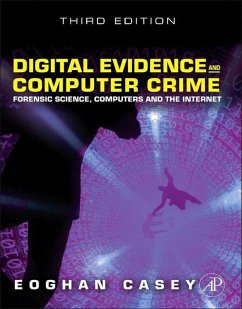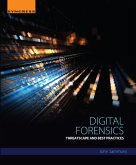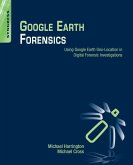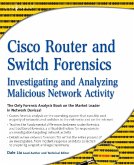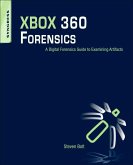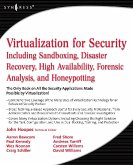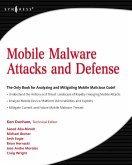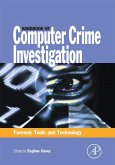Dieser Download kann aus rechtlichen Gründen nur mit Rechnungsadresse in A, B, BG, CY, CZ, D, DK, EW, E, FIN, F, GR, HR, H, IRL, I, LT, L, LR, M, NL, PL, P, R, S, SLO, SK ausgeliefert werden.
"Just finished Digital Evidence and Computer Crime: Forensic Science, Computers and the Internet by Eoghan Casey and featuring other contributing authors, and it s quite good. I bought this book because I wanted an all-encompassing book that provided insight on the various aspects of an investigation, especially the legal portion. And in this aspect the book does an excellent job, and is in-depth in area s I have yet to see in other books. The book is divided into five portions digital forensics, digital investigations, apprehending offenders, computers and network forensics. For me the book was worth it for the first three portions; however, the computers and network portions, while a good start, there are more in-depth books that provide better insight Overall, the book was enjoyable from start to finish and I would recommend it to anyone looking for a great overview of digital forensic investigation process from start to finish. I am happy to add this book to my growing reference library." --Student of Security
"This hefty book on forensic evidence obtained from computers dispels the myths propagated by popular television series. It states from the premise that very few people are well versed in the technical, evidential, and legal issues concerning digital evidence. Oftentimes, the useful evidence that may be found in various digital media is overlooked, collected incorrectly, or analyzed ineffectively. It is the goal of the team of contributors to equip readers with the necessary knowledge and skills to be able to make use of digital evidence correctly and effectively . It is quite obvious that the various authors draw from several fields, such as forensic science, computer science, political science, criminal justice, the law, and behavioral analysis; as such, it is multi- and interdisciplinary. More specifically, the authors tackle the specific crimes of cyber bullying, cyber stalking, identity theft, online sex offenders, fraudsters, and cyber threats. There is extensive use of boxed stories, legal cases, practitioner s tips, tables, the discussion of legislation, flow charts, treaties and journals, as well as figures, diagrams, pictures, and computer screen shots. The book is comparative in nature: it covers not only cyber law in the US, but also case law in the UK, Ireland, and the Netherlands. Given the ubiquity of the computer and the crimes that it can generate, learning about how other nations handle these issues helps in the formation of our own methods for dealing with crimes domestically, as well as those that cross national boundaries." --ACM s Computing Reviews.com
"A better title for Digital Evidence and Computer Crime might be the Comprehensive Guide to Everything You Need to Know About Digital Forensics. One is hard pressed to find another book overflowing with so many valuable details and real-world examples." --Ben Rothke on Slashdot.org (Sept 2011)

